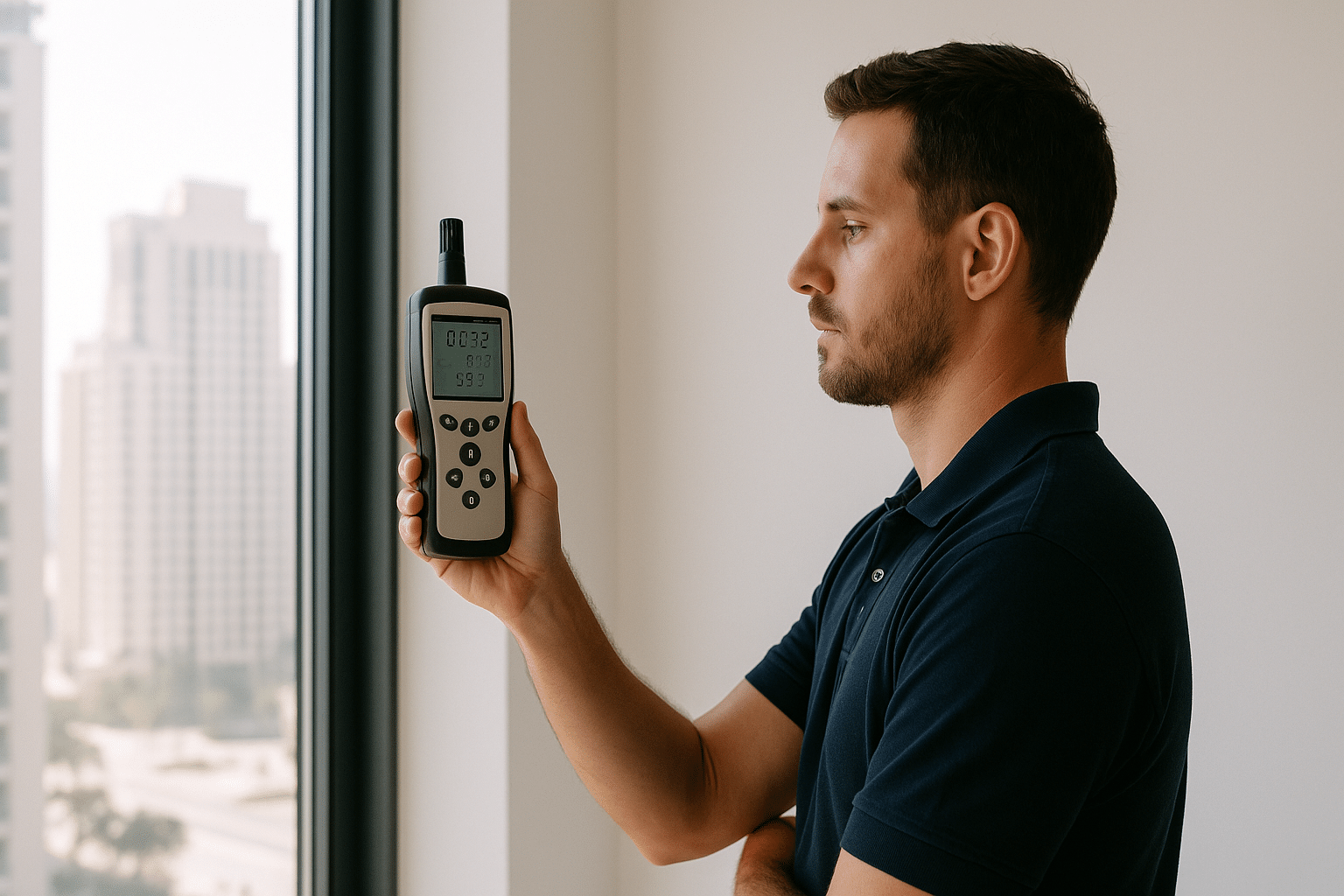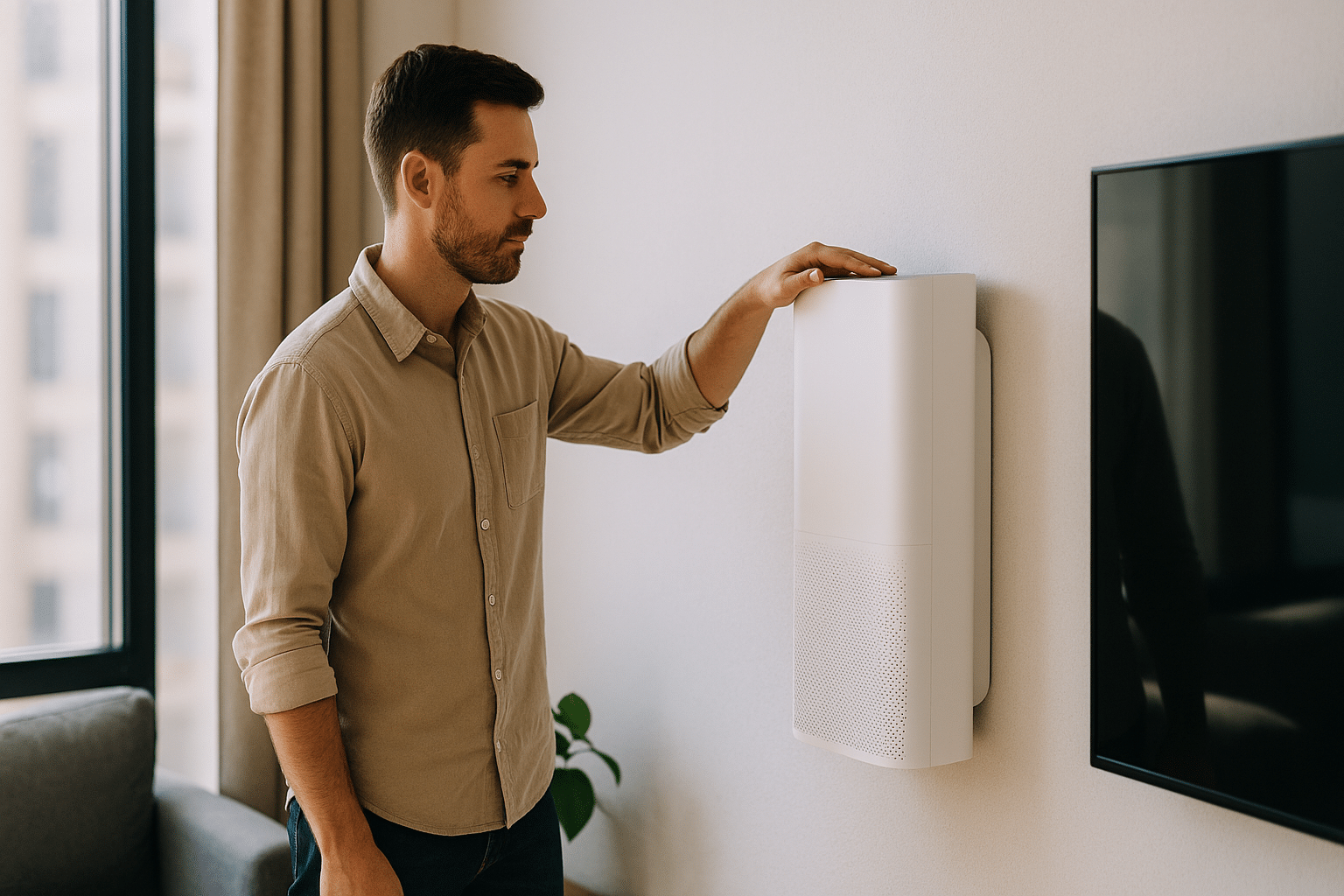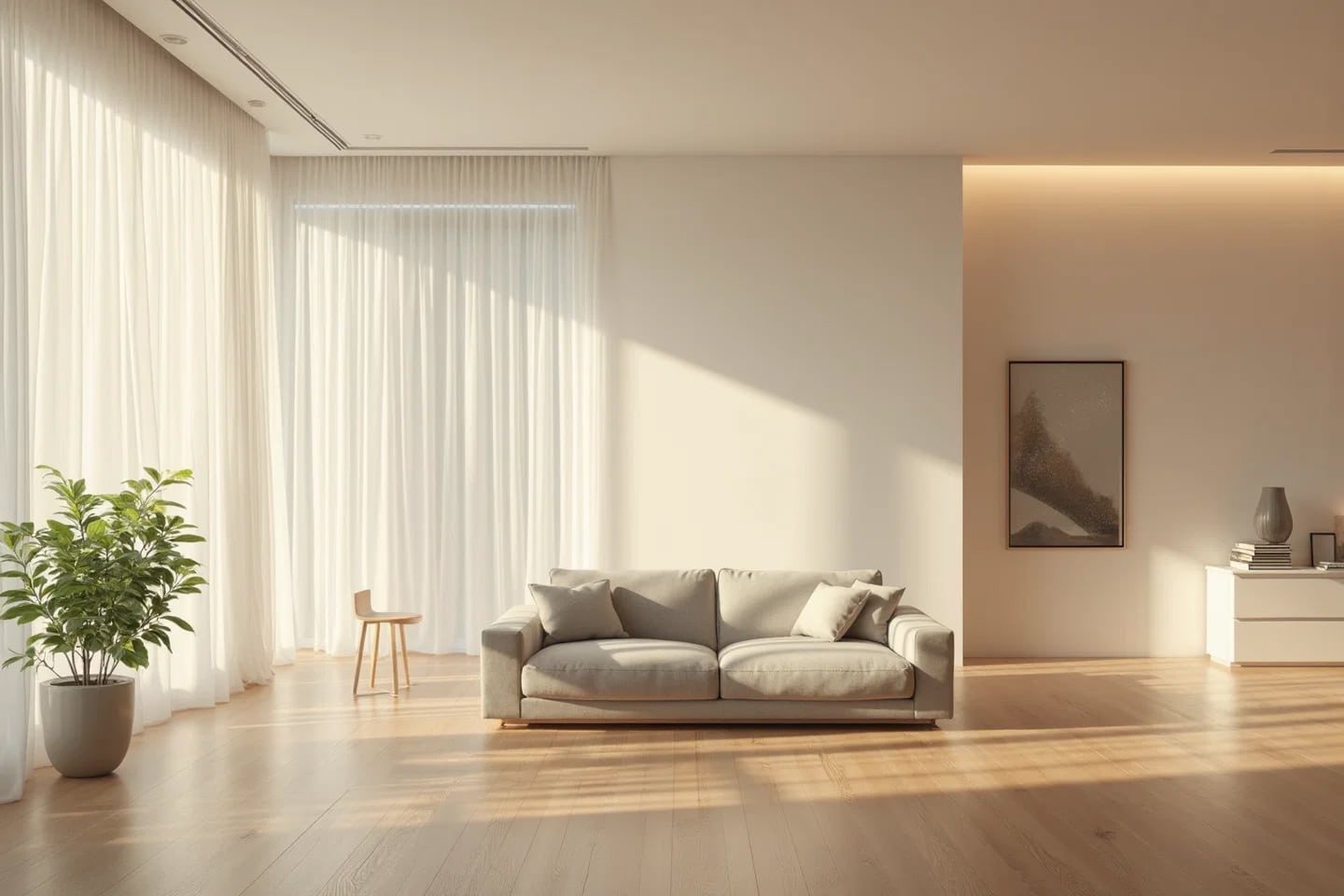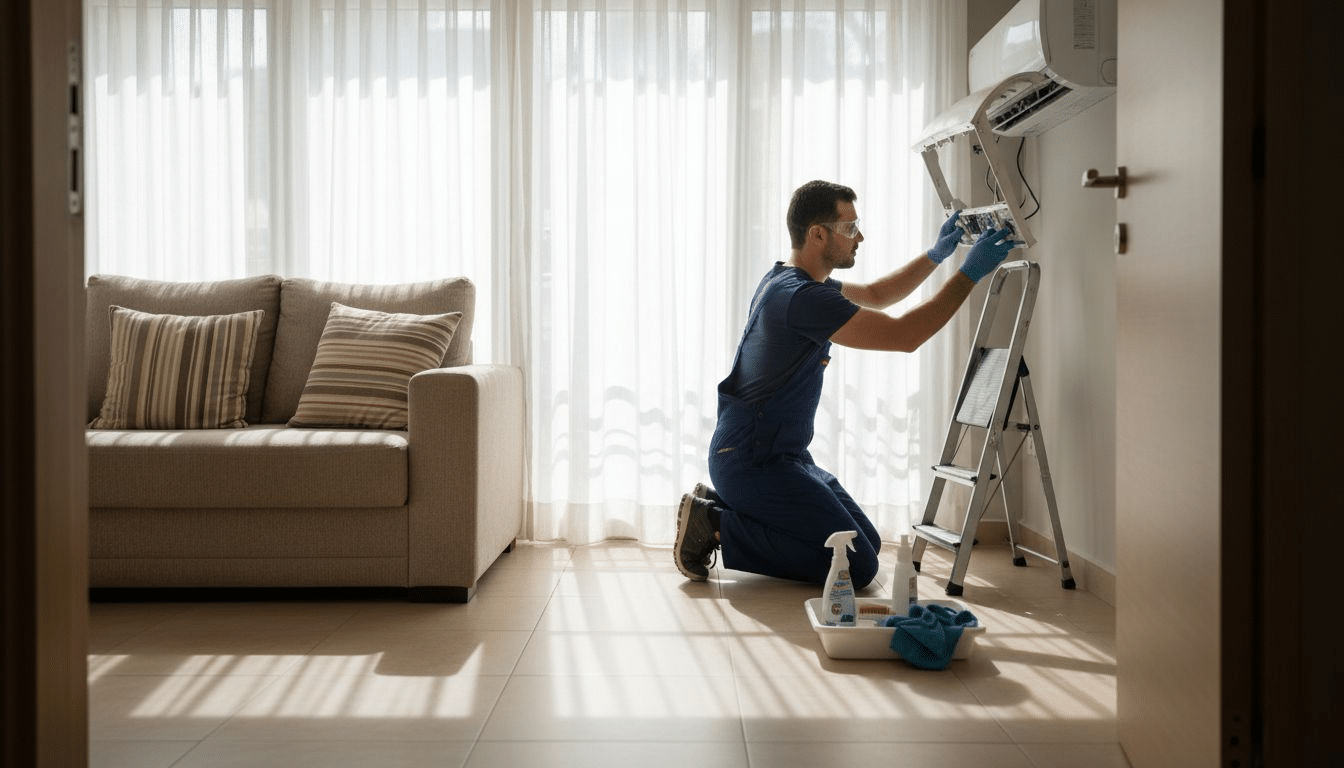
5 Critical Benefits of Indoor Air Quality Testing Dubai for a Healthier Home
Table of Contents
Contents
- 1 Table of Contents
- 2 What Is Indoor Air Quality Testing Dubai?
- 3 Why Indoor Air Quality Testing Dubai Is Essential
- 4 Professional Services for Indoor Air Quality Testing Dubai
- 5 FAQ About Indoor Air Quality Testing Dubai
- 5.1 What factors affect indoor air quality in Dubai homes?
- 5.2 How often should indoor air quality testing Dubai be conducted?
- 5.3 Is indoor air quality testing Dubai relevant only for health-compromised individuals?
- 5.4 Can indoor air quality testing Dubai detect mold?
- 5.5 Does indoor air quality testing Dubai address chemical pollutants?
- 6 How to Maintain Optimal Air Quality in Dubai Homes
- 7 Conclusion and Actionable Steps
- 8 Understanding the Importance of Indoor Air Quality Testing Dubai
- 9 Indoor Air Quality Testing Process and Techniques in Dubai
- 10 Benefits of Conducting Indoor Air Quality Testing in Dubai
- 11 Maintaining Healthy Indoor Air Quality After Testing
What Is Indoor Air Quality Testing Dubai?
Indoor air quality testing Dubai refers to the professional assessment and analysis of the air inside residential and commercial buildings in Dubai. This process measures pollutants, allergens, humidity, and ventilation efficiency to ensure indoor environments meet health and safety standards. With Dubai’s climate and rapid urban growth, maintaining clean indoor air is critical for comfort and wellbeing.
The testing involves sampling air pollutants such as particulate matter, volatile organic compounds (VOCs), carbon monoxide, and molds. Experts use advanced instruments designed to detect and quantify these contaminants precisely, offering a clear snapshot of air quality within Dubai’s unique indoor spaces.
Why Indoor Air Quality Testing Dubai Is Essential
Indoor air quality directly impacts health, productivity, and comfort. Dubai residents face challenges such as dust storms, high temperatures, and enclosed air-conditioned environments which can worsen indoor pollutant concentrations.
The importance of indoor air quality testing Dubai can be categorized as follows:
- Health Protection: Poor indoor air quality aggravates respiratory problems, allergies, and can trigger asthma. Vulnerable groups like children and the elderly require extra caution.
- Compliance with Local Standards: Dubai Municipality and related health authorities require buildings to adhere to indoor air quality standards to ensure safe living and working spaces.
- Effective HVAC Maintenance: Testing helps identify hidden issues with air conditioning systems to prevent mold growth and filter inefficiency.
- Energy Efficiency: Proper ventilation and clean HVAC components optimize energy use, which is vital for both sustainability goals and operational costs.
By investing in professional indoor air quality testing Dubai, you ensure your indoor environment keeps pace with rapid urban and industrial growth patterns seen across Dubai localities like Business Bay and Dubai Marina.
Professional Services for Indoor Air Quality Testing Dubai
Reliable indoor air quality testing Dubai services provide detailed inspections tailored to Dubai’s climate and building types. These services usually include:
- Comprehensive Air Sampling: Collection of air samples using calibrated devices to measure pollutants including dust, VOCs, carbon dioxide, and humidity levels.
- HVAC System Inspection and Cleaning: Assessing air conditioner ducts and filters for buildup or contaminants. Scheduling cleaning reduces microbial growth and improves air circulation.
- Diagnostic Reporting: Detailed reports that outline pollutant levels, comparison with Dubai Municipality guidelines, and actionable recommendations.
- Post-Cleaning Verification: Follow-up testing after cleaning or repair work to confirm air quality improvements.
Companies like Saniservice Dubai, providing expert indoor air quality testing Dubai services, specialize in such services exclusively for the Dubai market, involving expert teams trained according to Dubai Health Authority (DHA) protocols and Dubai Municipality regulations.
In addition, organizations affiliated with the National Air Duct Cleaners Association (NADCA) often set the benchmark for processes and quality, ensuring that testing and cleaning meet internationally recognized standards adapted for Dubai.
FAQ About Indoor Air Quality Testing Dubai
What factors affect indoor air quality in Dubai homes?
Dubai’s dry climate, frequent dust storms, and reliance on air conditioning systems contribute strongly to indoor air quality challenges. High humidity levels in some areas, poor ventilation designs, and building materials can introduce or exacerbate pollutants.
How often should indoor air quality testing Dubai be conducted?
Regular testing intervals depend on building use and exposure. For typical homes in areas like Nad Al Sheba or Arabian Ranches, annual or biannual assessments are recommended, especially if occupants experience health symptoms related to air quality.
Is indoor air quality testing Dubai relevant only for health-compromised individuals?
No. While individuals with asthma or allergies benefit greatly, all residents and building owners should prioritize such testing to prevent chronic issues and maintain comfort.
Can indoor air quality testing Dubai detect mold?
Yes, specialized assessment includes detecting airborne mold spores and identifying humidity levels that encourage mold growth, providing guidance for remediation.
Does indoor air quality testing Dubai address chemical pollutants?
This assessment covers volatile organic compounds (VOCs) commonly emitted from paints, cleaning agents, and furniture found in Dubai homes and offices.
How to Maintain Optimal Air Quality in Dubai Homes
Maintaining excellent indoor air quality requires combining professional testing with daily practices designed for Dubai’s environment. Some actionable tips include:
- Regular AC Maintenance: Schedule frequent servicing and cleaning of HVAC systems. Dirty filters and ducts worsen air quality rapidly.
- Ventilation Improvement: Use exhaust fans and open windows during cooler periods in Dubai’s mornings and evenings to circulate fresh air.
- Humidity Control: Use dehumidifiers or air conditioners effectively to maintain indoor humidity between 30% and 50%.
- Clean Living Areas: Dust and vacuum regularly using HEPA filters to reduce allergens and particulate matter accumulation.
- Restrict Indoor Pollutants: Minimize smoking indoors, use low VOC paints, and avoid excessive use of chemical cleaning agents.
Dubai residents can also benefit from installing indoor air purifiers designed to capture fine particles prevalent in urban and desert air. Combining these techniques with annual indoor air quality testing Dubai ensures a consistently healthy atmosphere.
Conclusion and Actionable Steps
Investing in indoor air quality assessment stands as a proven method to protect health, comply with Dubai Municipality standards, and ensure indoor comfort year-round. By partnering with trusted providers, residents in Dubai can access tailored solutions for all their air quality concerns.
Take control of your indoor environment today. Schedule a professional air quality test to uncover hidden pollutants and secure expert advice on cleaning and maintenance. Prioritize your family’s wellbeing by improving the air you breathe—because clean air indoors is a powerful foundation for a vibrant life in Dubai.
Understanding the Importance of Indoor Air Quality Testing Dubai
Indoor air quality (IAQ) significantly influences health, comfort, and productivity, especially in rapidly developing urban environments like Dubai. With the city’s ever-expanding residential towers, commercial complexes, and industrial zones, ensuring good indoor air quality has become a critical priority. Regular air quality assessments serve as a key tool to identify pollutants and assess the overall cleanliness of indoor environments, allowing stakeholders such as building managers, homeowners, and business owners to create safer living and working spaces.
Dubai’s unique climate and urban structure pose particular challenges to indoor air quality. The hot desert climate encourages extensive use of air conditioning, which, if not properly maintained, can circulate contaminants such as dust, mold spores, and volatile organic compounds (VOCs). Moreover, new construction materials and furnishings may off-gas chemical pollutants, worsening IAQ over time without detection. This underlines the importance of professional air quality assessment in Dubai to evaluate pollutant sources and compliance with regulatory standards such as those set by Dubai Municipality and the Dubai Health Authority (DHA).
Key Pollutants Commonly Assessed in Indoor Air Quality Testing
Indoor air quality assessment in Dubai aims to detect and quantify various pollutants that may impact occupants’ health and safety. Some of the most common pollutants tested include:
- Particulate Matter (PM2.5 & PM10): Fine dust and airborne particles that can penetrate deep into the respiratory tract, aggravating asthma and other respiratory conditions.
- Volatile Organic Compounds (VOCs): Chemicals emitted from paints, adhesives, electronics, and cleaning products that may cause headaches, dizziness, or long-term health effects.
- Carbon Dioxide (CO₂): Elevated carbon dioxide levels can indicate poor ventilation and result in fatigue or impaired cognitive function.
- Carbon Monoxide (CO): A colorless, odorless gas from incomplete combustion that poses serious health risks in enclosed spaces.
- Biological Contaminants: Mold spores, bacteria, and allergens that can trigger allergic reactions and infections.
- Formaldehyde: Commonly found in building materials and furnishings, it is a carcinogenic compound requiring prompt identification.
Identifying these pollutants through a comprehensive air quality check in Dubai allows building operators to take appropriate remediation steps and ensure a healthy indoor environment.
The Regulatory Framework and Standards Governing Indoor Air Quality in Dubai
In Dubai, indoor air quality is not only a matter of public health but also a regulated parameter, especially in commercial and public buildings. The Dubai Municipality has published guidelines and requirements aligned with broader UAE health and safety standards to address IAQ issues effectively. These include recommendations on ventilation rates, maximum permitted pollutant concentrations, and routine monitoring protocols.
The Dubai Health Authority (DHA) also emphasizes IAQ in healthcare facilities and public spaces, ensuring environments comply with health and safety codes. Additionally, the UAE Fire & Life Safety Code, applicable across Dubai, integrates air quality considerations in ventilation system designs to prevent the spread of smoke and harmful gases during emergencies.
Building management teams in Dubai, particularly in areas such as Business Bay, Downtown Dubai, and Dubai Marina, are increasingly responsible for complying with these guidelines. Regular IAQ assessments help verify that building conditions meet or exceed the stipulated standards, providing occupants peace of mind and safeguarding operational licenses where applicable.
Indoor Air Quality Testing Process and Techniques in Dubai
The process of indoor air quality assessment in Dubai involves a systematic procedure designed to capture an accurate snapshot of indoor contaminant levels. Service providers typically deploy advanced portable monitoring devices and sampling techniques, suited to the diverse environments found in Dubai from residential communities like Arabian Ranches to large office complexes in Dubai Silicon Oasis.
Step 1: Preliminary Site Assessment
Before monitoring commences, IAQ specialists conduct a thorough inspection to understand the building’s structure, ventilation systems, occupancy patterns, and potential pollution sources. This contextual understanding helps customize the testing strategy to the unique characteristics of the property.
Step 2: Air Sampling and Measurement
Using calibrated instruments, testers measure specific air pollutants over a defined period, which may range from several hours to a full day to capture variations. Common tools include:
- Real-time analyzers for gases like CO and CO₂
- Particulate counters to quantify dust and aerosols
- Air sampling pumps collecting contaminants on filters for laboratory analysis, including mold and VOC levels.
Step 3: Data Analysis and Reporting
Data collected undergoes detailed analysis to compare pollutant concentrations with Dubai Municipality’s recommended thresholds. The testing report methodically outlines the types and sources of pollutants detected along with actionable recommendations. These may range from improving HVAC maintenance and upgrading filtration systems to adopting low-emission materials during renovations. Understanding the results of such air quality assessments is crucial for effective remediation.
Benefits of Conducting Indoor Air Quality Testing in Dubai
Beyond regulatory compliance, a thorough indoor air quality assessment in Dubai offers many tangible benefits that support healthier and more sustainable indoor environments:
- Health Protection: Early detection of harmful pollutants helps prevent respiratory issues, allergies, and chronic diseases among occupants. For families in communities in Nad Al Sheba or office workers in Business Bay, this can mean significantly improved well-being.
- Enhanced Comfort and Productivity: Good air quality contributes to better concentration, reduced fatigue, and overall comfort, factors critical in Dubai’s corporate offices and educational institutions.
- Energy Efficiency: Identifying ventilation inefficiencies can lead to better HVAC system management, saving energy while maintaining air quality.
- Property Value Preservation: Regular IAQ testing ensures buildings remain safe and attractive to tenants, helping property owners in Dubai Marina and Jumeirah maintain asset value.
- Legal Compliance and Risk Mitigation: Testing assists in meeting Dubai Municipality and DHA regulations, reducing risks associated with non-compliance, such as fines or forced closures.
Why Choose Professional Indoor Air Quality Testing Services in Dubai?
While various DIY devices exist, professional testing services specialized in the Dubai market offer unmatched accuracy, comprehensive pollutant detection, and adherence to local standards. Experts bring in-depth knowledge of Dubai’s environmental conditions, building typologies, and the latest regulatory requirements ensuring clients receive reliable, tailored solutions. Choosing professional IAQ testing in Dubai ensures reliable results and expert advice.
Furthermore, many Dubai-based indoor air quality service providers offer convenient testing packages that accommodate busy schedules and provide rapid, detailed reports enabling timely interventions.
Maintaining Healthy Indoor Air Quality After Testing
Testing serves as a critical first step, but ongoing maintenance is essential to sustain optimal indoor air quality in Dubai’s climate and urban settings. Key recommendations include:
- Regular HVAC Maintenance: Clean and service air conditioning units frequently to prevent buildup of dust and microbial contaminants.
- Adequate Ventilation: Ensure natural or mechanical ventilation meets Dubai Municipality standards, especially in densely populated areas.
- Use Low-Emission Materials: Opt for certified paints, adhesives, and furnishings that emit fewer VOCs when renovating properties in Dubai’s residential zones.
- Control Humidity Levels: Use dehumidifiers or air conditioners that maintain indoor humidity within the ideal range (30%–50%) to inhibit mold growth.
- Routine Monitoring: Schedule regular air quality checks in Dubai to track changes and promptly address emerging issues.
By combining thorough air quality assessments with effective maintenance strategies, residents and businesses can create safer and more comfortable indoor environments aligned with Dubai’s health, safety, and sustainability goals.






Leave a Reply